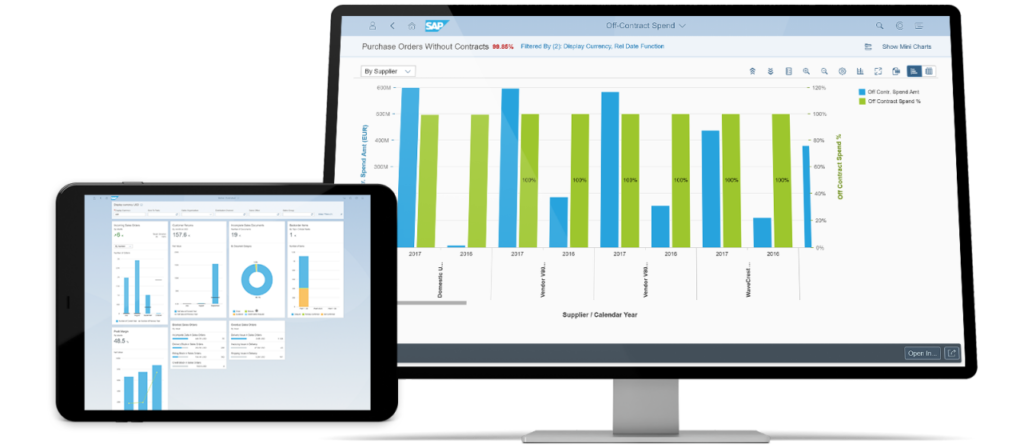
- April 4, 2023
- Alaa Mostafa
- 0
ERP solutions for businesses of all sizes
ERP stands for enterprise resource planning, but what does ERP mean?
The simplest way to define ERP is to think about all the core business processes needed to run a company: finance, HR, manufacturing, supply chain, services, procurement, and others. At its most basic level, ERP helps to efficiently manage all these processes in an integrated system. It is often referred to as the system of record of the organization.

How does ERP fit at any size?
ERP isn’t just for global enterprises. ERP solutions are designed for businesses of all sizes – small, midsize, and large. You can also get industry- and company-specific functionality to meet unique business needs. Regardless of your business sector and size, you’ll want to carefully plan your ERP implementation project, following best practices.
Small business ERP
ERP software for small businesses can help you move beyond spreadsheets and efficiently manage every aspect of your growing company – from sales and customer relationships to financials and operations. Small business ERP tools are typically in the cloud, quick to install, and designed to grow with you.
Mid-Market ERP
Today, ERP software designed for mid-market companies and subsidiaries benefits from built-in analytics, rapid deployment, and best practices for dozens of different business processes – financials, HR, supply chain management, and more. Midsize ERP tools help growing businesses scale and compete, even with limited resources. Modular, cloud-based enterprise ERP systems are also a popular choice for midmarket companies with complex processes or plans for rapid growth.
Enterprise ERP
Large companies with global or subsidiary operations need a robust, market-leading ERP system with embedded AI, machine learning, and analytics – and intelligent automation to transform business models and processes. ERP systems can be deployed on-premise, in the cloud, or a hybrid scenario depending on business needs. They can integrate with existing databases or, ideally, run on newer, powerful in-memory databases.
Many companies are modernizing and upgrading their on-premise ERP systems to cloud deployments. This requires careful planning of your ERP upgrade, as well as an ERP evaluation and review of your deployment options.
Source: SAP Insights


